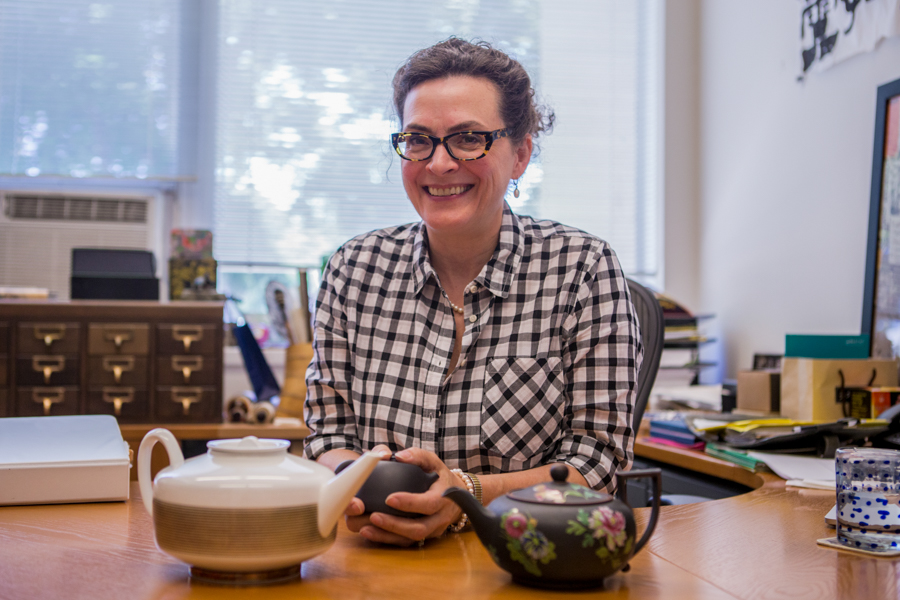
UC Davis establishes The Global Tea Initiative
On May 12, UC Davis hosted the first of three international colloquiums to kick off the Global Tea Initiative, which will study both the cultural and scientific aspects of tea.
“The wonderful thing about tea is that you can think about it in all sorts of ways. You can think about it in terms of the culture, the society, the nutrition, the health, the science and all of these ways are viable,” said Katharine Burnett, initiative director and associate professor of art history. “This colloquium helps us communicate quickly the breadth of our vision that it really is global. We want every kind of discipline involved because we will benefit from this kind of study.”
The colloquium featured several talks about tea, including a talk on the history of a popular purple sand clay teapot created by tea master Wingchi Ip of Lock Cha Tea House in Hong Kong, and a discussion about different tea varieties from Yaoping from Zhejiang University in China.
Kristin Surak, a lecturer from the University of London, discussed tea practices in Japanese culture, while Carl L. Keen, a UC Davis professor of nutrition and internal medicine, explored the potential positive cardiovascular effects of tea in his talk.
“I am so pleased that this got support from the administration,” said Xioa Ling Shu, a member of the Global Tea Initiative’s executive board and UC Davis sociology professor. “We are also starting to attract international partnerships; a number of universities in other countries have contacted us [about] this.”
In coming years, the initiative will establish an institute for the study of tea, making UC Davis the leader in the field. Burnett has many ambitions for how the initiative will affect the campus, including the introduction of a tea garden and tea shop where students can study or try teas from across the world.
Since UC Davis scientists already look into some areas of tea research, the initiative will hopefully further and support those studies. For example, Shu conducts research on influences the process of globalization consumption has on behavior of tea in China. More specifically, he deals with how the introduction of coffee in China by larger corporations, such as McDonalds and Starbucks, affects the preservation of tea culture — something that will become increasingly important as more corporations take over the food and drink markets.
“The proportion of tea drinkers declined in China and the decline is larger among the more educated but not among the wealthiest,” Shu said. “The proportion of coffee drinkers at the same period increased but there is little education or income based variation in this increase. So this is probable consistent with the western convergence model that western lifestyle is replacing the more traditional Chinese lifestyle. So coffee is to some extent replacing tea.”
Dr. Yvonne Wan from the UC Davis Medical Center pathology department studies how natural products can improve health. Wan stressed the importance of educating people on the health benefits of tea.
“For a long time, we have known that tea is an antioxidant; that is why a lot of people drink green tea — but there is more to it,” Wan said. “In my laboratory, we are initiating a study where we are looking at a key component in the tea and how that key component can change our gut microbes, and in turn, improve metabolism and [prevent] western-diet-induced metabolic disorder.”
While UC Davis has programs in place for the study of tea, beer and wine, this initiative is the first attempt to bring together the professionals from around the world who study tea.
“I think this is a perfect topic; UC Davis has diverse research interests,” Wan said. “[We] definitely need to study the beneficial health effects of [tea] in addition to the culture and art. I think we can take care of almost all aspects of tea research, including cultural history and social science to health benefits.”
Written by: Amanda Cruz — features@theaggie.org




